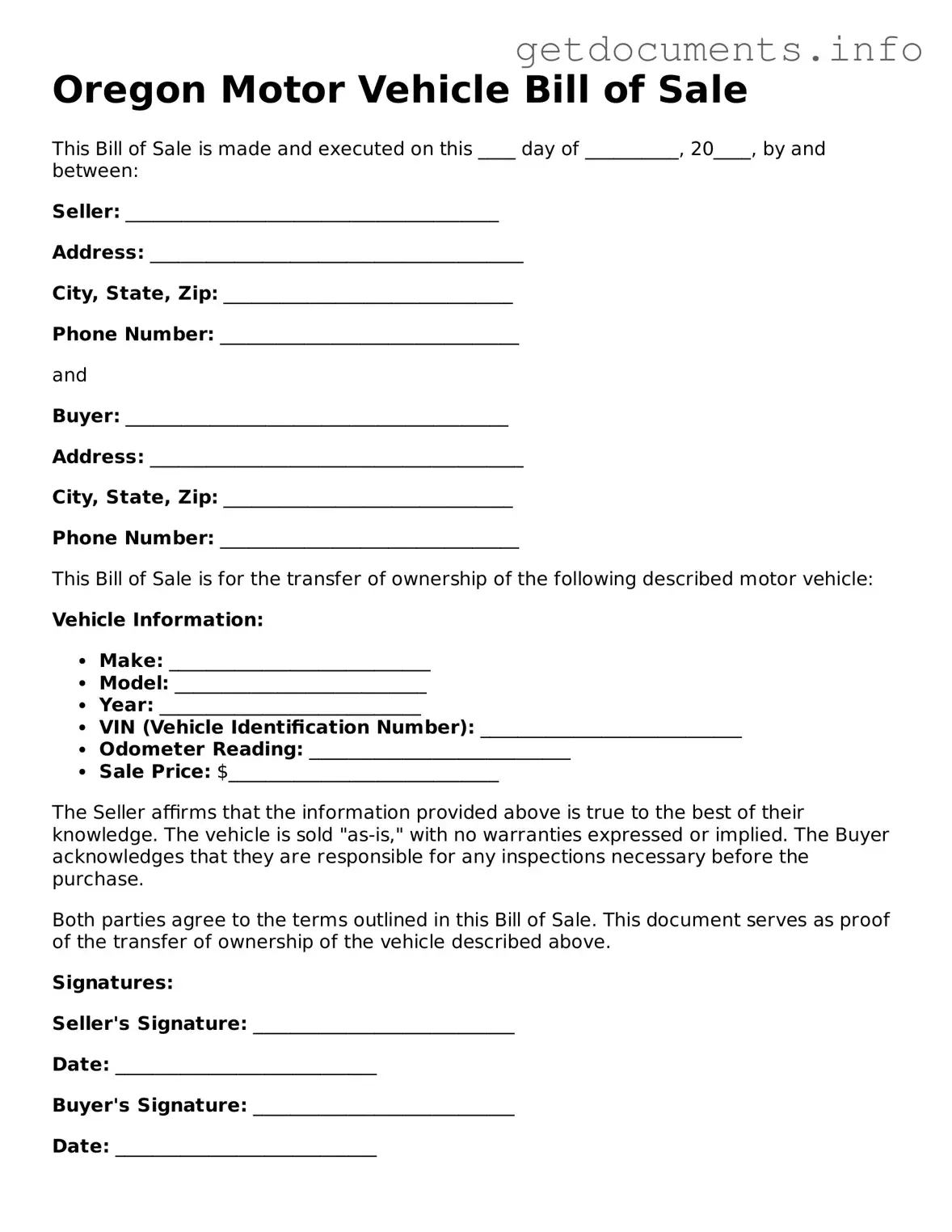Free Motor Vehicle Bill of Sale Template for Oregon
The Oregon Motor Vehicle Bill of Sale is a crucial document that records the transfer of ownership for a vehicle in the state of Oregon. This form serves as proof of the sale, detailing important information about the buyer, seller, and the vehicle itself. Understanding its significance can help ensure a smooth transaction and protect both parties involved.
Ready to complete your vehicle sale? Fill out the form by clicking the button below.
Access Motor Vehicle Bill of Sale Editor

Free Motor Vehicle Bill of Sale Template for Oregon
Access Motor Vehicle Bill of Sale Editor
Got places to be? Complete the form fast
Fill out Motor Vehicle Bill of Sale online and avoid printing or scanning.
Access Motor Vehicle Bill of Sale Editor
or
⇩ PDF File
